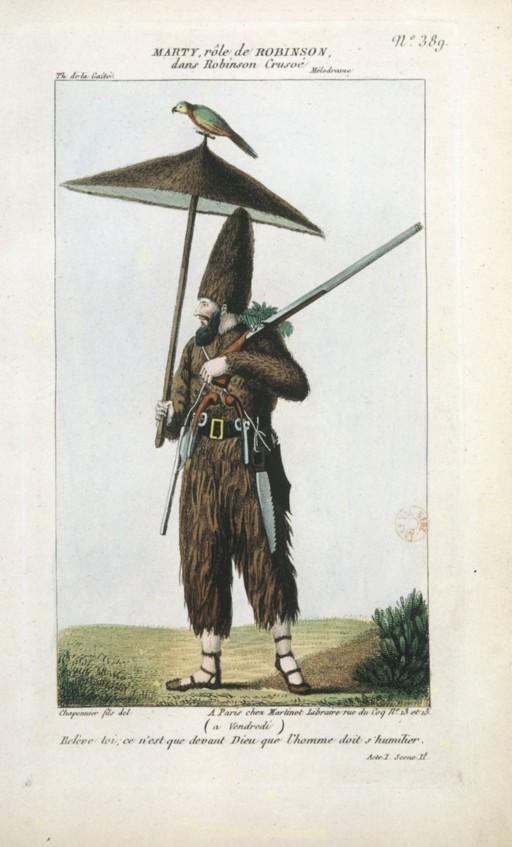Date: 14 April, 2015
“Literature IN Economics, and Economics AS Literature II: The Economics of Robinson Crusoe from Defoe to Rothbard by way of Bastiat.”
A paper given at the Association of Private Enterprise Education International Conference (April 12-14, 2015), Cancún, Mexico. HTML and PDF. An earlier working title was “Robinson Crusoe and Praxeology: A History”.
Abstract: Daniel Dafoe’s novel The Life and Strange Adventures of Robinson Crusoe of York, Marriner (1719) has provided economists and social theorists with a rich and seemingly infinitely broad canvas on which they can paint whatever picture they like of the nature of economic activity. In addition to Dafoe’s own economically informed, English Protestant original story, there have been Marxist, feminist, post-colonial, neo-classical, as well as Austrian accounts of the activities of the man ship-wrecked on the Island of Despair. These have been termed “Robinsonades” or “Crusoe economics.”
In this paper I want to examine the importance of this story to the Austrian School of Economics which, more than any other, has seen the bare outline of the story of Crusoe’s survival as a powerful means of abstracting the ideas behind human action away from any particular historical moment in order to better understand the logic of human action or praxeology, both in its economic and moral dimensions.
A survey of classical texts going back to the 17th century show numerous very general references to men as “natural man,” the “savage,” the “isolated individual”, the man in the “state of nature”, the European colonizer or settler, and so on, but none until the mid–19th century makes any systematic effort to use Crusoe economics to examine human action in the abstract for the purpose of grounding their very theory of economics.
The first to do this was Frédéric Bastiat in several essays and in his incomplete magnum opus Economic Harmonies which appeared between 1847 and 1850.
His pioneering efforts were not appreciated at the time, even by William Stanley Jevons who was the most sympathetic to Bastiat of all the Marginalists writing after 1870. Böhm-Bawerk used “Crusoe economics” extensively in his writings on the theory of capital but did not recognize Bastiat’s contributions to economic theory and dismissed his work generally as unimportant. Ludwig von Mises, while recognizing the greatness of Bastiat as an economist, nevertheless referred to Robinson Crusoe only in passing and usually derogatively as being part of an “autistic” economy or as facing the same problems as socialist central planners in not having price information to help him make economic decisions.
It was not until Murray Rothbard reworked the fundamentals of Austrian economic theory in Man, Economy, and State (1962) that Bastiat’s version of Crusoe economics was made the centre-piece for understanding the fundamentals of human action in the first three chapters of his treatise. Here, the use of Crusoe economics was designed to be Wertfrei (value-free) in the Misesian tradition.
Twenty years later in The Ethics of Liberty (1982) Rothbard also made Crusoe the foundation of his ethical theory for liberty in which “the condition and actions of Crusoe are here analyzed not in order to establish economic concepts, but rather those of natural-rights morality – in particular, of the natural sphere of property and ownership, the foundation of liberty. The Crusoe model enables one to analyze the action of man vis-à-vis the external world around him, before the complications of interpersonal relations are considered.” (Preface, The Ethics of Liberty, p. vi). In this later use of Crusoe Rothbard has turned the story into a “Wertvoll” (value laden) moral theory in order to ground his theory of liberty and ultimately his theory of anarcho-capitalism.
Thus, we can see the important role the story of Robinson Crusoe has played in the development of Austrian economics in general and in the moral and political theory of at least one important group within the modern libertarian movement, namely the followers of Murray Rothbard.

